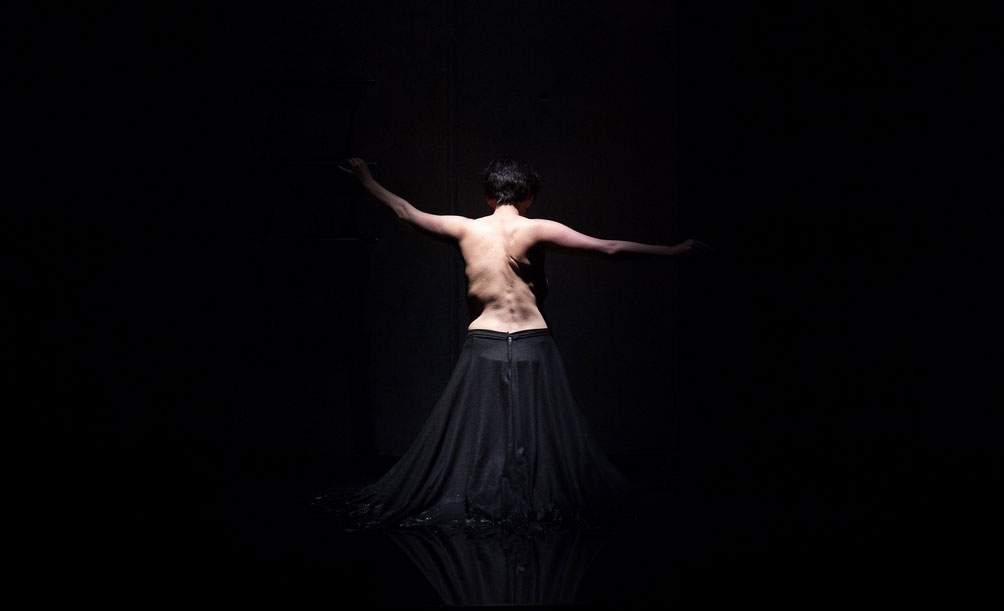Exil – Sydney Chamber Opera
It's opera not as you know it, and it cuts surprisingly deep.
Overview
Exil is Sydney Chamber Opera's final hurrah for the season and it's something special. The post-Holocaust poetry of Paul Celan and Hans Sahl placed alongside Psalm 23, and set against Jane Sheldon's extraordinary vocal performance, forms the foundation for this take on contemporary Georgian composer Giya Kancheli's song cycle.
Directed by Belvoir resident Adena Jacobs, Exil is a haunting attempt at expressing the inexpressible. As the grandchild of Holocaust survivors, Jacobs is conscious of the problems one faces in trying to represent that which no words can describe. Carriageworks is an apt setting for the performance, made all the more eerie by the frequent passing of trains.
The design is minimalist, stripped down and cast in shadow, opening on Sheldon kneeling in a shallow pool of water, her bare back to the audience. While she faced a blank wall, her voice penetrated the distance between herself and the audience. Her solitary figure is made all the more haunting when the words of Psalm 23 are projected onto the wall to her right, and to her left the orchestra, conducted by Jack Symonds, are bathed in yellow light.
In performing the song cycle created in 1994 and never meant for the stage, Symonds and Sheldon have been faithful to Kancheli’s minimalist, although heavily romantic and post-Mahlerian style. The slow speed of the music lends weight to Sheldon’s tonal range, and the effect was a rich and moving, at times anguished and fleeting representation of what no words can describe, that tongue of desperation to survive.
Sheldon, praised by the New York Times for singing "sublimely", is a New York-based Australian soprano, who has worked under the direction of William Christie and has performed with the London Philharmonic Orchestra. She is utterly captivating in the role — even more so given she is on her knees for the first part, barely moving, and spends the second half of the performance in a soaking wet woollen coat.
And what does Exil achieve? It is testament to the power of poetry to fill that gap between experience and understanding, and the power of art to guide survivors from horror into the unknown days ahead. Sheldon's is a lonely voice against the scale of the most familiar of biblical prayers — "The Lord is my shepherd..." — and against the harrowing and pointed poetry of Celan and Sahl. The voice is lonely but not isolated — it is a harrowing voice because it calls for freedom for beyond torture, for human connection despite the imprisonment of soul.
Performances are held on Saturday, December 7, Monday, December 9, Wednesday, December 11, and Friday, December 13, all at 8pm. Image by Louis Dillon-Savage.





